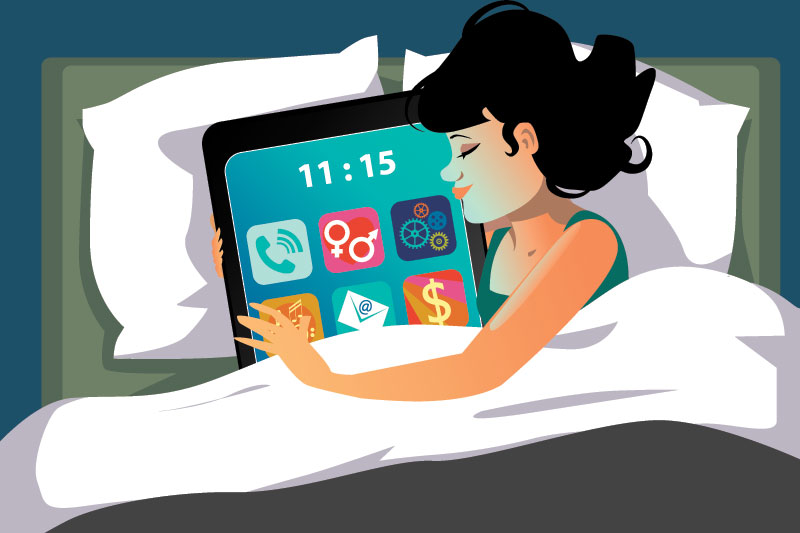
A slave to connectivity, or master of your life? You choose, says Marsha Egan
The advances in digital technology have been truly amazing – enabling us to be connected, well, constantly. With our ability to check email at 2am, receive phone calls while traveling wherever we are, and hold real-time video meetings with clients and co-workers halfway across the globe, the velocity of progress has grown exponentially.
And our abilities to determine our engagement levels have become more challenging.
The big challenge for us is that there is enough work, information and business “stuff” to occupy our every waking minute. And we also know intuitively that we do have to turn it off. We know it, but do we do it? The rush that we get from the ding of a new text, or the brrinng of a new message is hard to pass up. The excitement of that new-found treasure trumps our focus on the task at hand or the family time in play. And all of a sudden, we are reconnected when we didn’t want to be. And the cycle continues.
There is a way out. It takes you taking action, rather than reacting to those invading digital triggers. It takes you deciding that you will take control, rather than that inanimate instrument taking control of you. Now, just how do you take control, and when?
How?
How is pretty simple. Just turn it off. Shut the computer down. Turn the smartphone off. Say “I’m not available at that time.” Silence the alerts. Just turn it off!
The brevity of this statement should not be lost in the importance of it. You do have control of the on and off button. You are not tethered to your iPhone. Your Blackberry does not own you. You control your PDA, not the other way around.
When you decide that you control the off button, the door is opened to your ability to disconnect.
When?
Now, “when” to turn it off can be a bit more challenging…
I have actually coached more than one person who kept his or her smartphone by the bed, “just in case” the boss sent an email at 2am. I have witnessed an applicant in a job interview take a non-urgent phone call from a friend during the interview. And we have all seen people checking their phones while driving…
Remember, we are the thinking ones here. We can decide that we can turn off the electronica. It does not control us – it is the other way round.
So, as an example, when you decide your workday is over, let it be over. That chapter of the day is done. Kaput. Believe that it was a job well done and let it go. Transition to a new activity, a new engagement, a new thought pattern.
When you’re having family time, resist checking the PDA. Not only will your kids notice its imposition, but you’re inviting distraction to important or memorable childhood moments.
Checking the smartphone during an important meeting, aka “the Blackberry Prayer” is career threatening. Not only does your boss notice this, but it tells everyone in attendance that you’re not fully engaged in the meeting.
Here’s the thing. Breaking from one task to another is healthy. By shutting down your workday so that you and your spouse can have a truly enjoyable dinner can be energizing and fulfilling. Turning the Blackberry off as you walk in the door signals to you that it is play time with those anxiously awaiting kids. Putting the PDA away during an important meeting allows you full focus on the task at hand.
To keep both activities “open” essentially serves each only partial attention. If you’ve conversed with someone who was checking his or her smartphone at the same time, you know what I mean. They weren’t all there.
It can be stressful to try to serve two masters at the same time; you can feel like you’re robbing one or cheating the other. Not to mention the rework that can result from not fully engaging the first time.
My best advice is to engage activities in time chunks, and to separate. Set boundaries about how and when you will use and interact with your smartphone, and let those close to you know those boundaries.
Don’t keep it running 24-7. It’ll wear you down. Shut it down, then open it up. Remember – you have your finger on the controls – that’s the easy part.












